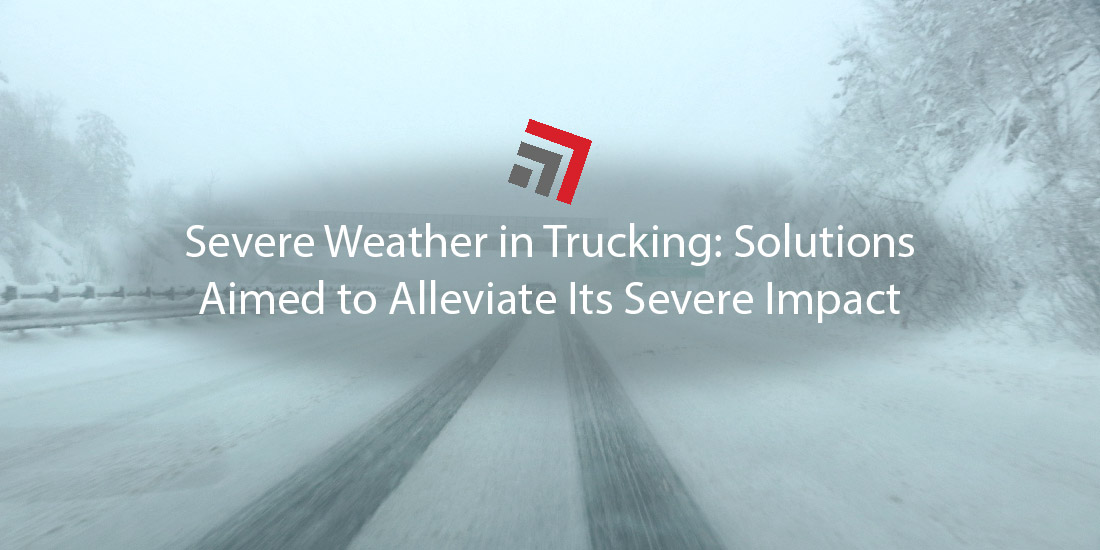Of the 5.8 million vehicle crashes estimated each year in the United States, about 21 percent—or 1.23 million—are influenced by weather conditions, according to the National Highway Transportation Safety Administration (NHTSA).
In does not take an expert to imagine the impact weather has on the trucking industry. Roads and highways are the arteries for its operations. Clearly, weather can spur on delays for truckers across the country due to hazardous road conditions. Fleet Owner estimates weather-related delays cost trucking companies around $2.2 billion to $3.5 billion annually. A sobering reminder to stakeholders that smooth operations are at Mother Nature’s whim.
Severe Weather
As if delays were not tormenting enough to the trucking industry, more significant and severer weather events have precipitated disruptions across the supply chain. Last January, the southern U.S. was blasted by an unlikely snowstorm. This weather phenomenon caught a region of the country not familiar with extreme winter conditions completely off guard. Southern cities do not have reasonable infrastructure to manage such conditions. In return, this leads to unsafe roads and considerable freight delays. Unsurprisingly, this comes as an eye-opening expense for trucking companies.
Additionally, Freight Waves reveals many truck drivers are hesitant to accept loads in adverse weather. This comes as natural result of continued strained capacity and an industry-wide labor shortage.
“With the state of the market today, drivers have the opportunity to say no to loads they do not want to accept,” an industry insider told Freight Waves.
Mitigating Severe Weather’s Impact
Unfortunately, for the trucking industry, humans have not yet developed any technologies to control the weather. Instead, weather-related disruptions can best be mitigated through accurate forecasting and information gathering of predicted future conditions.
Technology companies have been working on solutions to optimize forecasting capabilities for road conditions. Global Weather Corporation (GWC) has been a frontrunner in this pursuit introducing RoadWX, its advanced condition monitoring technology. GWC CEO Bill Gail spoke to Freight Waves and described this innovation: “[RoadWX] is a unique physics-based model to compute how road surfaces respond initially to rain or snow, as well as when the road freezes or dries after rain or snow ends.”
In order to put this new technology to test, GWC has partnered with NIRA Dynamics AB (of Volkswagen Group) where the two will combine this forecasting model with vehicle features and technologies and apply them to the roads.
Final Thoughts
Severe weather disruptions pose considerable delays and costs for the trucking industry and, in totality, the domestic supply chain. If fully realized, innovative technologies, like GWC’s RoadWX, will allow for a modicum of control through accurate monitoring of roads and highway conditions. Weather’s impact on logistics will never dissipate, however these are crucial improvements for the trucking industry desperate to stay one step ahead. Please do not hesitate to contact one of our team members if you have any further questions on this topic or any others in domestic logistics.



Recent Comments